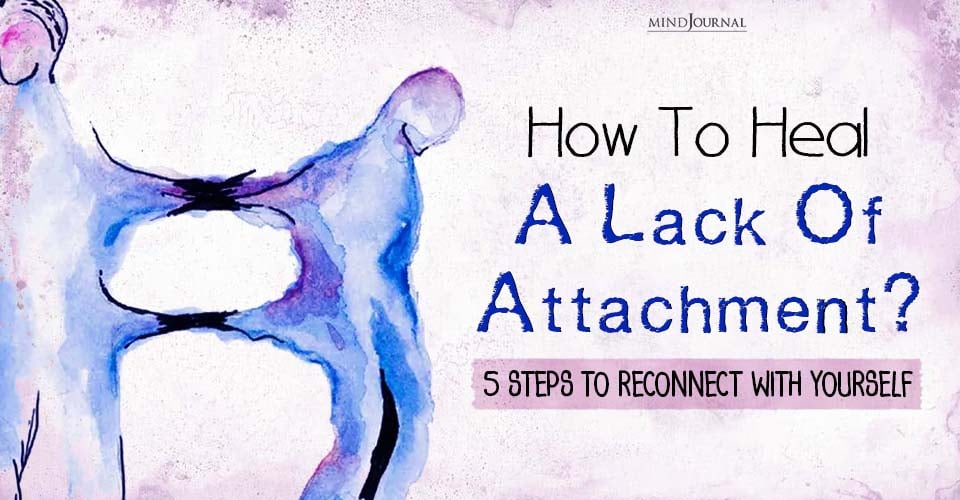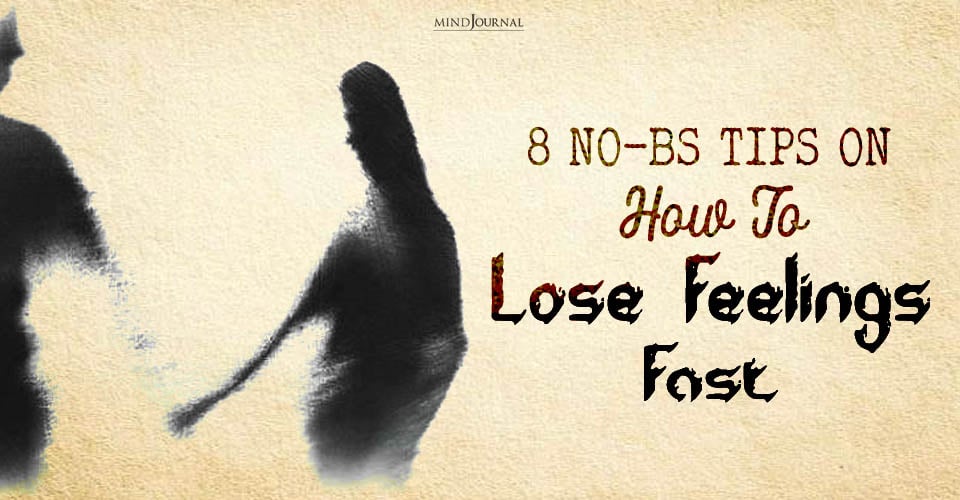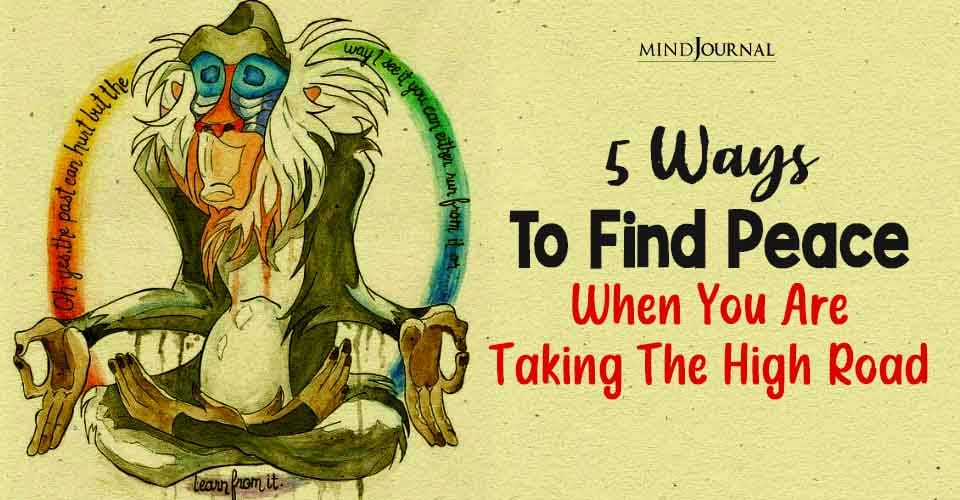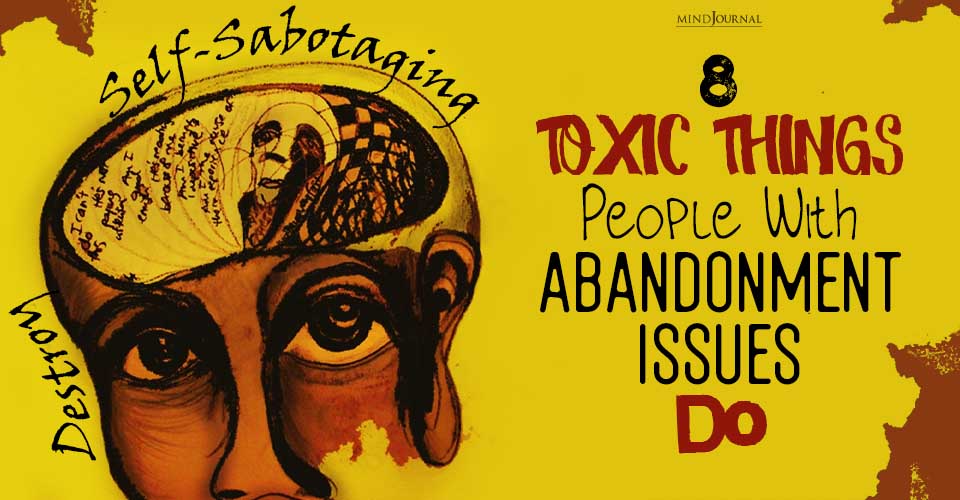Although we seek love, we may unwittingly damage or derail it. Surprisingly, our fear of not being loved, which includes fear of abandonment, loneliness, and rejection, can lead to eight common behaviors that sabotage love and relationships.
When we lack self-love, although we may have relationships, generally they’re unfulfilling or don’t last. We won’t find real love if we don’t believe we’re lovable. How this unconscious belief affects us is explained in “The Startling Reason We Sabotage Love.”
This article focuses on behavior that sabotages love. For example, we’ll find fault with intimate partners who love us or we’ll attract someone unavailable or who don’t show us, love. We allow people to treat us as we treat ourselves. We might even tolerate abuse, believing we can’t do better or because we’re afraid of being abandoned or alone. Here are common ways in which our fears and insecurities derail love.
Related: Our Generation Has Ruined Love With These 4 Excuses
8 Ways We Sabotage Love
1. Conflict
Most relationships deteriorate because of conflict. Conflict usually stems from feeling undervalued or rejected in some way. Our needs aren’t being met, nor communicated effectively.
Healthy communication is the bedrock of fulfilling relationships. Dysfunctional communication leads to conflict or shuts down communication altogether. Researcher John Gottman identified four predictors of divorce: Criticism, defensiveness, contempt, and stonewalling.
Partners are either silently resentful or complain or attack in ways that make their partner feel criticized. In either case, both feel hurt and unloved, yet want to be loved and not abandoned. When we feel vulnerable, we usually attack or withdraw, thereby triggering each other in endless, painful cycles of conflict.
Often our reactions are caused or intensified by events long ago when emotional abandonment by a parent would have felt life-threatening. (These dynamics are explained on Conquering Shame and Codependency.)
“We want love, but sabotage it, because we fear not having it.”
2. Dysfunctional communication
Dysfunctional communication is a relationship killer. It derives from feeling insecure about ourselves and our acceptability. We won’t express our needs and feelings but instead harbor hidden expectations and resentments. We blame and complain, manipulate, or are defensive and don’t take responsibility for our behavior and mistakes.
Due to fear of rejection, rather than be vulnerable and openly admit our errors and hurt or ask for what we want and need (including boundaries), we withdraw or attack or expect our partner to read our minds. We can’t collaborate causing further resentment, and problems go unresolved. Stockpiled hurts and the lack of assertiveness can diminish sexual satisfaction.
3. Jealousy
Whether or not warranted, jealousy stems from fear of abandonment and feeling not enough―shame. Jealous accusations and suspicion hurt an innocent partner, ruining a relationship.
Related: Top 3 Ways Men and Women Stop Themselves From Finding The Love They Deserve
4. Dishonesty
Trust is essential to fulfilling relationships. It takes time to build but is easily destroyed. Partners sabotage love when they don’t consider the damage of deception. They hide information they fear will lead to judgment and abandonment. Once trust is damaged, it is difficult to rebuild.
5. Choosing the wrong person
Instead of finding a suitable partner, we may be drawn to someone who needs us or is a “diamond in the rough.” Then we try to change the person into a partner we want. Because we feel inadequate, fear commitment, or fear of being abandoned or alone, we attach to someone who is emotionally unavailable, or who is dependent, needs us, and who we know won’t leave.
An addict is an example. These codependent relationships fuel resentment and disappointment. They’re doomed from the outset. If we stay because we’re afraid to be alone or start over again, or we expect our partner to change, we block the possibility of finding love.

6. Boredom
Inauthenticity leads to boredom and deadness. Eventually, the excitement of romance fades. Real intimacy and true love don’t develop when we’re afraid to be vulnerable (because we fear rejection). Walls slowly build, and the relationship becomes cold, conflictual, or superficial. Partners blame each other for the loss of closeness and aliveness that drew first them together.
7. Distancing behavior
Even if we claim to not want a relationship, most of us still want closeness and love. Underneath we’re afraid of being judged, controlled, or abandoned. Perhaps we’ve suffered many losses. By not getting too close, we ensure that we won’t get too invested and be hurt or abandoned.
We may sabotage a relationship by having more than one partner at a time, by cheating, or by ending it before we’re rejected. We might push love away by fault-finding or withdrawing emotionally. Narcissists do this. They want love but destroy it by belittling their partner. As a result, they lose interest, get bored, and look for a fresh narcissistic supply of excitement and admiration.
Related: 2 Hidden Ways We Sabotage Intimacy In Relationships
8. Pursuing behavior
When we’re uncomfortable being alone and desperate for love, it’s because we don’t love and nurture ourselves enough. We can’t tolerate our discomfort. Our unconscious belief is, “I’m lovable if I’m loved.” As pursuers, we need steady proof that we’re loved and are easily prone to anxiety that we’re not. Our anxiety about abandonment is usually conscious. However, our behavior can actually push our partner further away, creating our worst fear.
Our hope, impatience, and excitement can easily camouflage our desperation. It can induce us to mistake limerance and romance for love and ignore our intuition and red flags. We may find people who confirm our negative fears and beliefs – who don’t or can’t love us. We may also be drawn to unavailable partners, whose fear of intimacy may initially be concealed in their pursuit of pleasure. Consciously, we miss and yearn for closeness, but secretly we fear it.
We can get stuck in a dance that perpetuates a cycle of abandonment, which we may come to both fear and expect. The solution is to become familiar with and embrace our wounds and our deepest fears and yearnings. The path to wholeness and self-love is not easy or pain-free.
We need support to get there – the emotional support we missed in our childhood. But as we look within, we gain peace, self-respect, and find the divinity that is our birthright. Watch for my next article on cultivating love.
Raise your Self-Esteem and change your attachment style. Improve your communication by learning to be assertive (ebook and webinar).
© 2019 Darlene Lancer
Written by Darlene Lancer Originally appeared in What Is Codependency












Leave a Reply